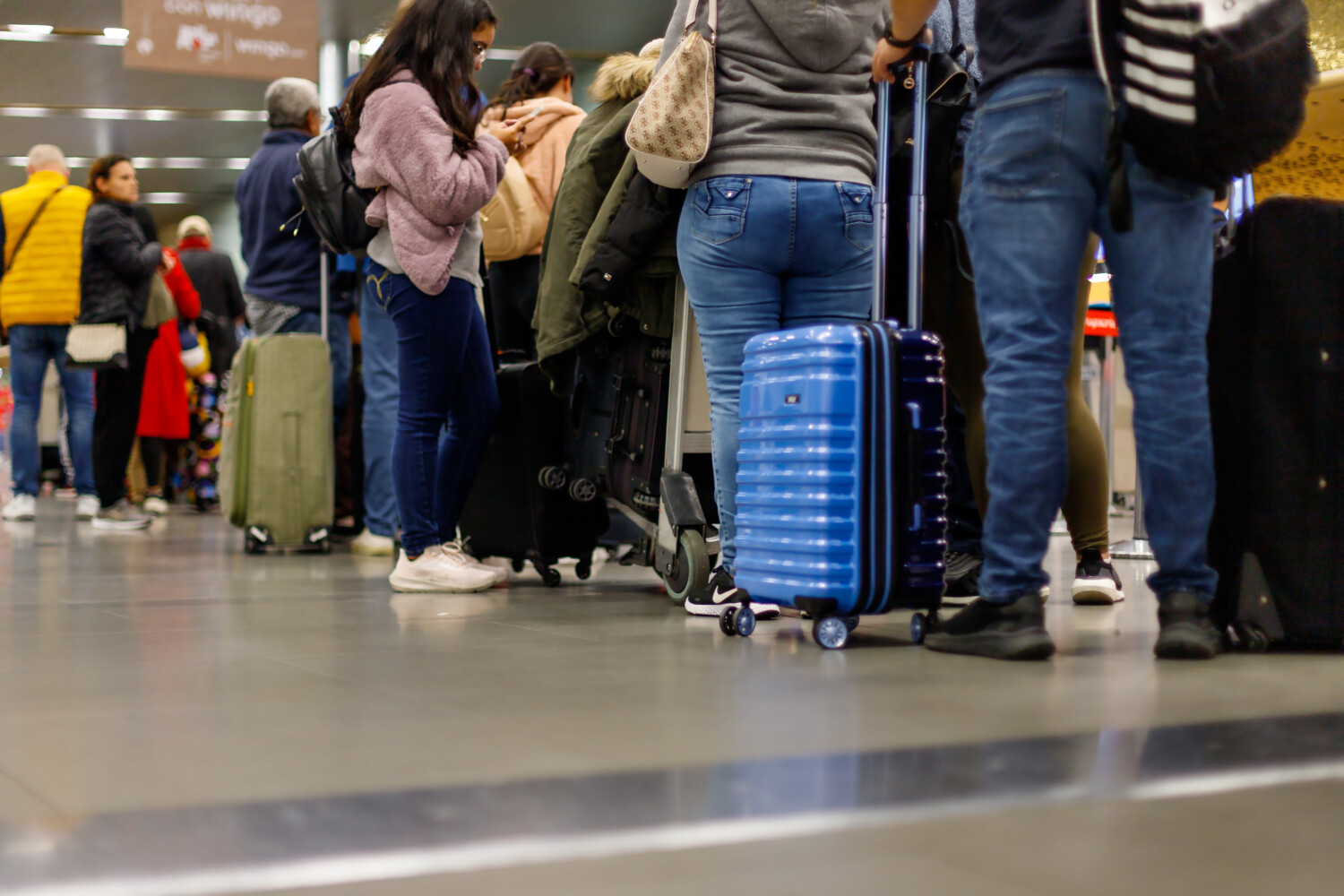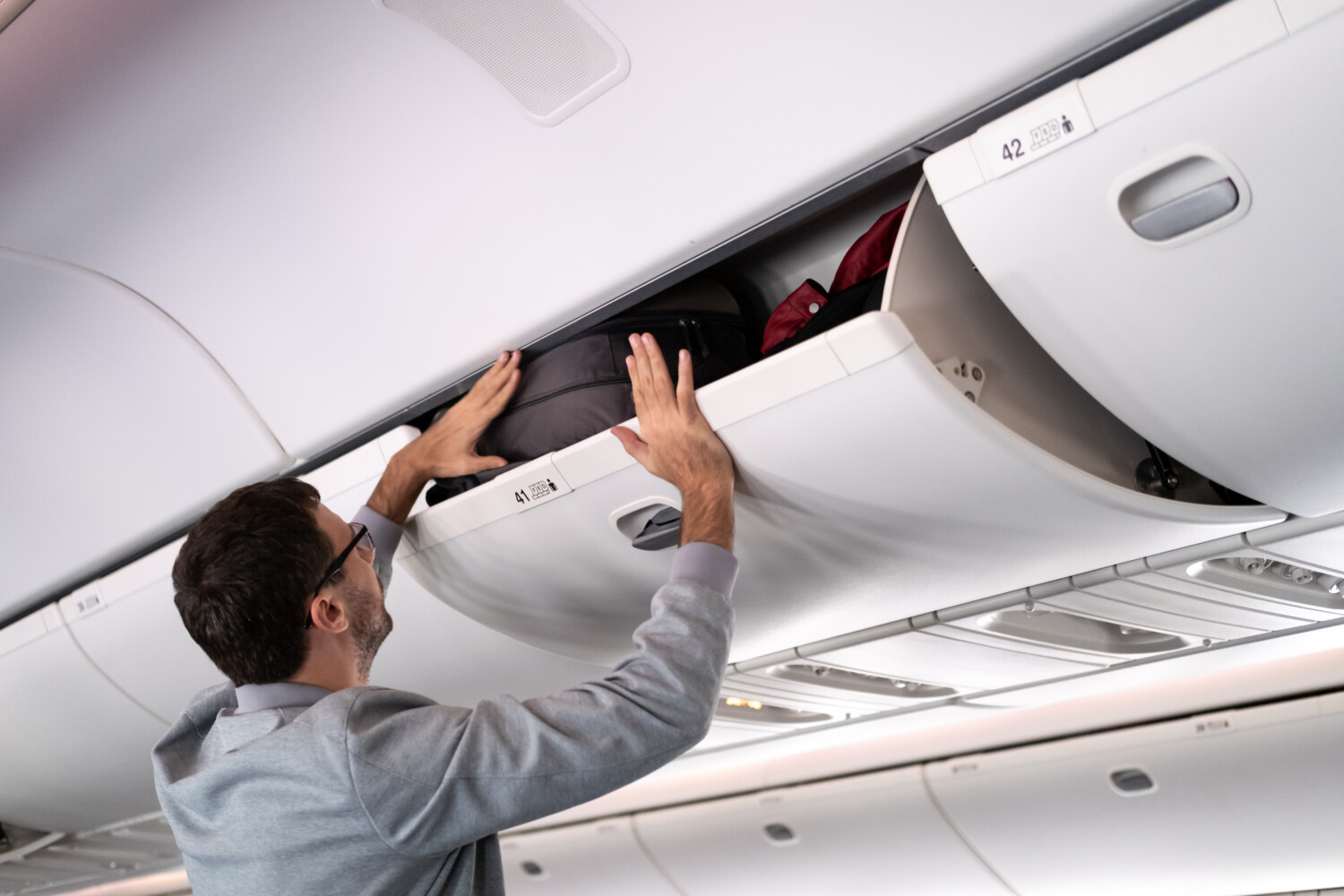Commercial jets have doors on both sides of the plane. But air passengers always board on the left side of the aircraft. Why is that?
It’s partly for practical reasons, and it’s partly a convention.
Let’s start with the practical explanation. As people are boarding a plane on the left, ground crew members are busy “handling tasks primarily on the right-hand side, like fueling and baggage loading,” Vishnu Ravi, an aerospace engineer, wrote on Quora. “Boarding from the left side ensures smooth foot traffic flow, allowing them to execute their duties efficiently.”
Secondly, keep in mind that when the plane is pulling up to the building, the pilot (who usually sits in the left seat) must line the plane’s door up with the passenger walkway, which is usually on the left. “Boarding from the left side facilitates the pilot’s ability to precisely align the plane door with the terminal,” Ravi says. If the pilot isn’t precise, the plane’s wing could hit the building.
MORE: Is turbulence dangerous? Here’s what you need to know
The left-side boarding method is also a convention that’s been passed down from naval tradition — when ships used the left side (port side) for embarking and disembarking. So it’s partly a norm that came out of this maritime heritage.
But no matter what side we enter a plane, many would agree that boarding commercial flights has become a longer and increasingly nerve-wracking process for passengers. One major reason is that more and more people are trying to avoid checking bags (to forgo the often long wait times to pick them up upon arrival). So, passengers are trying to carry more luggage on board than planes can often accommodate inside the cabin, leaving those who board last frantically searching through jam-packed overhead bins for a place to store their bags. Oftentimes, they end up having to check them at the gate.

The upshot? Everyone wants to get on the plane first, and the airlines have seized on this phenomenon as an opportunity. To make money off passengers’ desire for a good spot in line, they’ve created more and more boarding groups (American and Delta each have 10), allowing people who pay more to board earlier. (For example, you can get on the plane earlier if you are in business class, are a frequent flyer or simply paid extra for a better place in line.) With these systems in place, airlines are often not focused on the most efficient way to board. So in some cases, the wait to board a plane is longer than it has to be, not to mention more stressful.

MORE: What these common phrases you hear on an airplane really mean
But there is an airline experiment in the works to make boarding a little faster. According to the Wall Street Journal, Southwest Airlines is looking into ways to cut five minutes off the boarding process, which is currently about 40 minutes for smaller planes (like Boeing 737s) and 50 minutes for larger planes.
“If you can collect up enough of these minutes in each turn, then you can start to squeeze out some more flying,’’ Andrew Watterson, the airline’s chief operating officer, told the Wall Street Journal. To make this happen, the company is experimenting with 11 different time-saving ideas at four gates in the Hartsfield-Jackson Atlanta International Airport.
Among the ideas they are experimenting with are better communication between gate agents, ground crew and flight crew; a designated employee to check oversize bags or register pets well before boarding starts; roomier overhead bins; and the option to board planes from the front and back simultaneously.
MORE: The best carry-on luggage
This story originally appeared on Simplemost. Check out Simplemost for additional stories.


